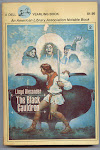Hide Fox and All After
In the second scene of Act 4 [of Hamlet], we find Hamlet alone in a room in Elsinore, where he's discovered by Rosencrantz and Guildenstern. They have been sent to bring him to the King who's just been informed of the death of Polonius. After taunting them with their servility, Hamlet agrees to go with them, and, as they exit together, he mutters "Hide fox and all after." Footnotes tell us what we might have guessed, that this is the name of a children's game, the one we know today as Hide and Go Seek.
Why does Hamlet say this? What does he mean? He isn't saying it to his former schoolmates, nor to the audience. They won't know what he means any more than we do. From this point on Hamlet talks in riddles a great deal of the time.
In Hide and Go Seek the child who is "it" plays the role of a hunted animal, a fox if you will, who is sought by the dogs, the other children. To evade the dogs the fox must be silent and crafty. When one of the hunters tracks him down, the hunter becomes the hunted, becomes the fox, becomes "it." This is only a game, of course, so the role of the fox is more glamorous than just being a dog, thus there is competition to be "it." To be the best dog, the one who finds the fox the quickest, then to be the best fox, the one who can evade the dogs for the longest time--is the motivating force that drives the game. Hamlet is a prince, born to rule. Refusing to see himself as a victim, he finds a way to cast himself as a winner--in his own mind at least--one who can "outfox" the dogs.
Hamlet is no longer a child, but until now he has lived a pampered existence. Blissfully unaware of the murderous animal energies that drive the politics of his father's court, he has, like Prospero, spent his life immersed in books and things of the mind. It has taken his father's murder to awaken him to the realities of power politics. Unwilling to believe the ghost without strong evidence of his uncle's guilt, he sets a trap, a play, to determine the truth. This works, yet it also puts him in serious jeopardy.
Once Claudius knows that he knows, Hamlet, formerly just an irritation, has become a deadly threat. Further, by killing Polonius, Hamlet has given his uncle a legitimate reason to get rid of him. Suddenly, for the first time in his life, he needs to get the hell out of his intellectual ivory tower and engage on the level of animal energies with all his wits about him. Knowing how fear can paralyze action, to encourage himself he summons up a game from his childhood, so that he can act freely, with the elan of a child at play. Thus it is to himself that he speaks when he murmurs "Hide fox, and all after."
Hamlet, Prince of Denmark is full of clues about the author, but these have led nowhere since there's nothing to be found in Stratford. There was no prince in Stratford, living in an ivory tower. This author felt safe in childhood, and what does he do as an adult? How does he deal with the cruel realities of life? He plays. He plays the lute, and he writes plays, in which, as in children's games, the victims rise when the curtain falls and the show is over to play again the following day in a world of make believe. This author was a man who felt powerless in the real world, but who found his strength and power in the world of the theater, the world of play.
The fox is safe as long as he remains hidden. There is nowhere Hamlet can hide his physical self from the King and his henchmen. But what he can hide are his intentions. From now on, Hamlet, who is of an open disposition by nature and inclined to reveal his feelings, hides them behind a mask of foolery.
Like Hamlet, his author too hides himself behind a mask--the one we call "Shakespeare."
By Stephanie Hopkins Hughes, The Shakespeare Oxford Newsletter, V. 43:#1, Winter 2007, pp 1,3.
Monday, November 3, 2008
The Search for Shakespeare
Posted by Joanne Cage --
Joanne Cage
at
11:29 AM
![]()
Labels: Shakespeare
Subscribe to:
Post Comments (Atom)













No comments:
Post a Comment